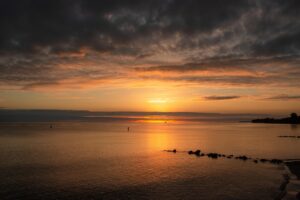Nature(s) in Narrative
The ISFNR Interim conference in 2026 will be held in Reykjavík Iceland, June 13th to 16th.
The conference will take place at the main campus of the University of Iceland, a walking distance from the vibrant city centre of Reykjavík. With nearly 24 hours of daylight, and plenty of geothermal pools to soak in, it’s the perfect place to recharge on all levels.
The conference is hosted by the department of Folkloristics at the University of Iceland, the Icelandic Association of Ethnology and Folklore and The Árni Magnússon Institute for Icelandic Studies.
This will be a hybrid event, so delegates will be able to participate either virtually or in person.
Deadline for panel proposals is June 20, 2025
Read more here
Conference Theme
The conference engages broadly with the theme of nature(s) in narrative. We ask how narrative is entangled with nature in its various forms, situated in the micro and macro, the rural and urban, ranging from essentialist notions of the natural, the supernatural to non-binary assemblages of nature-culture. Subjects for discussion might include the following:
How do notions of nature relate to narrations of identity, heritage, the national and personal, the physical and the spiritual?
What comprehensions of “the natural” can be gleaned from storytelling, in its various cultural and social contexts, and in folk narrative research itself?
How has our narrative vocabulary and academic terminology borrowed from and conversed with the discourses of nature?
Does folk narrative entail a commons of sorts?
How do environment and disparate nature-cultural assemblages shape narrative, characters, flow, style and storytelling events?
How are human and non-human entanglements expressed, sensed, performed and reimagined in storytelling events?
How do narrators delineate “selves” from “the other” in the living world; the natural from the “unnatural” or supernatural; the mundane from the enchanted?
How are our conceptions of nature shaped and challenged by unusual “natural events” and climate crises, or urbanisation, technology, information disorder (fake news) and artificial intelligence?
What are the “natures” of archives and how are they shaped by narratives?
Do natures in narrative reveal aspects of the “natures” of narrative, its forms, functions and practice?
